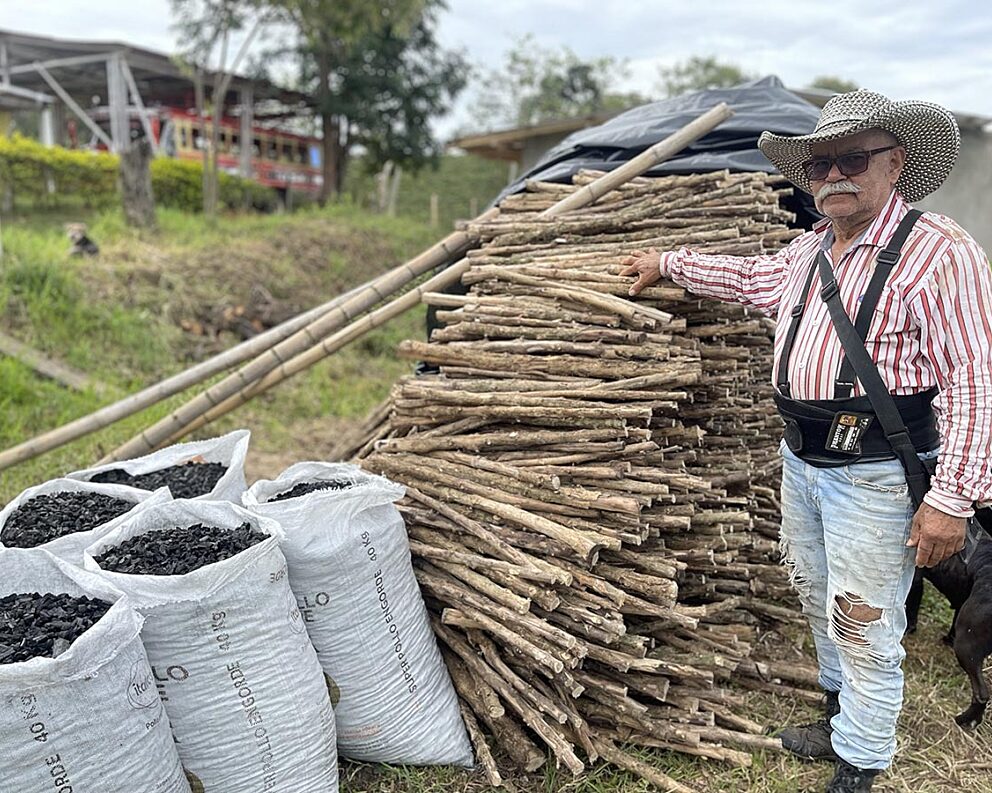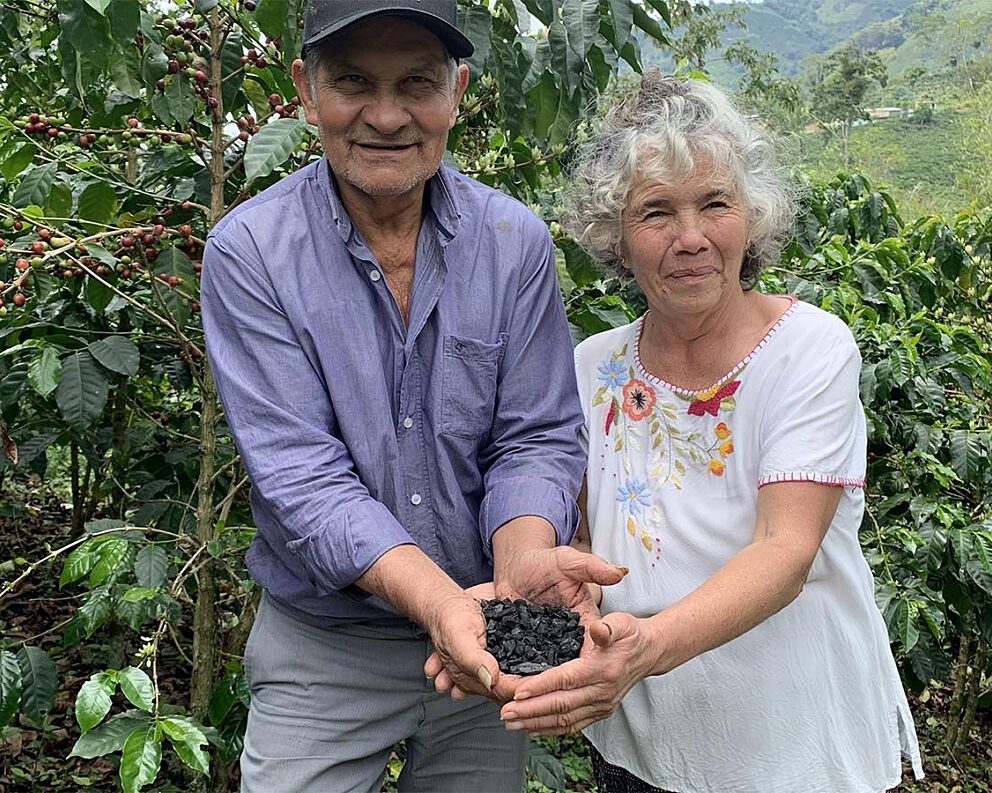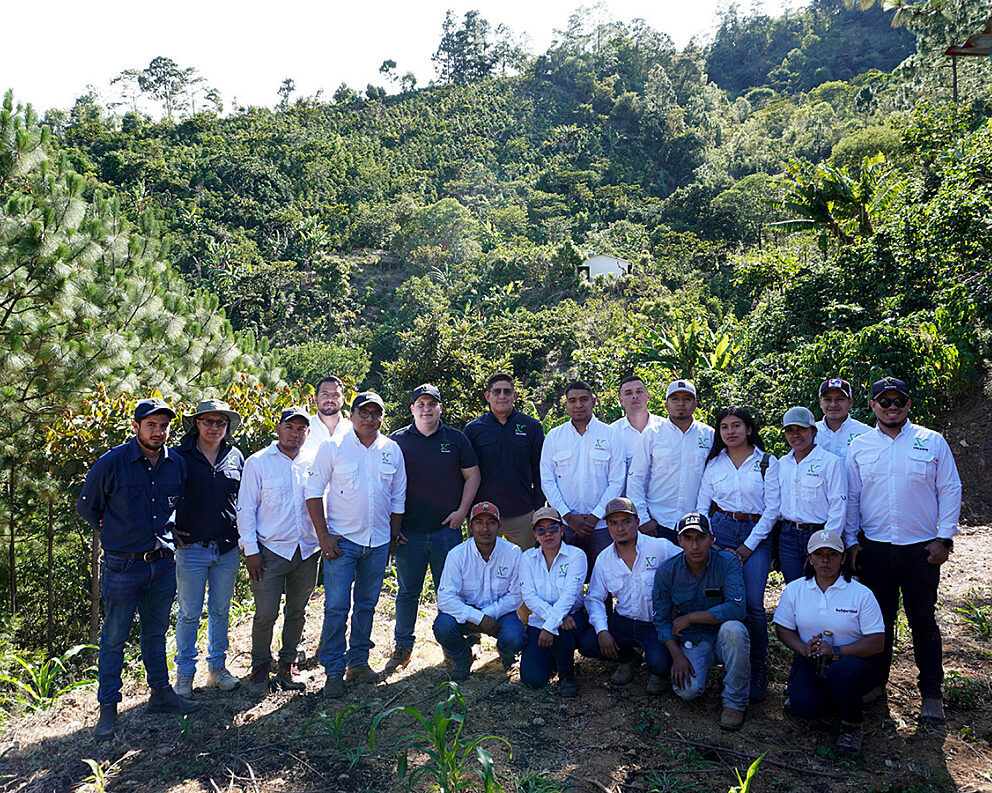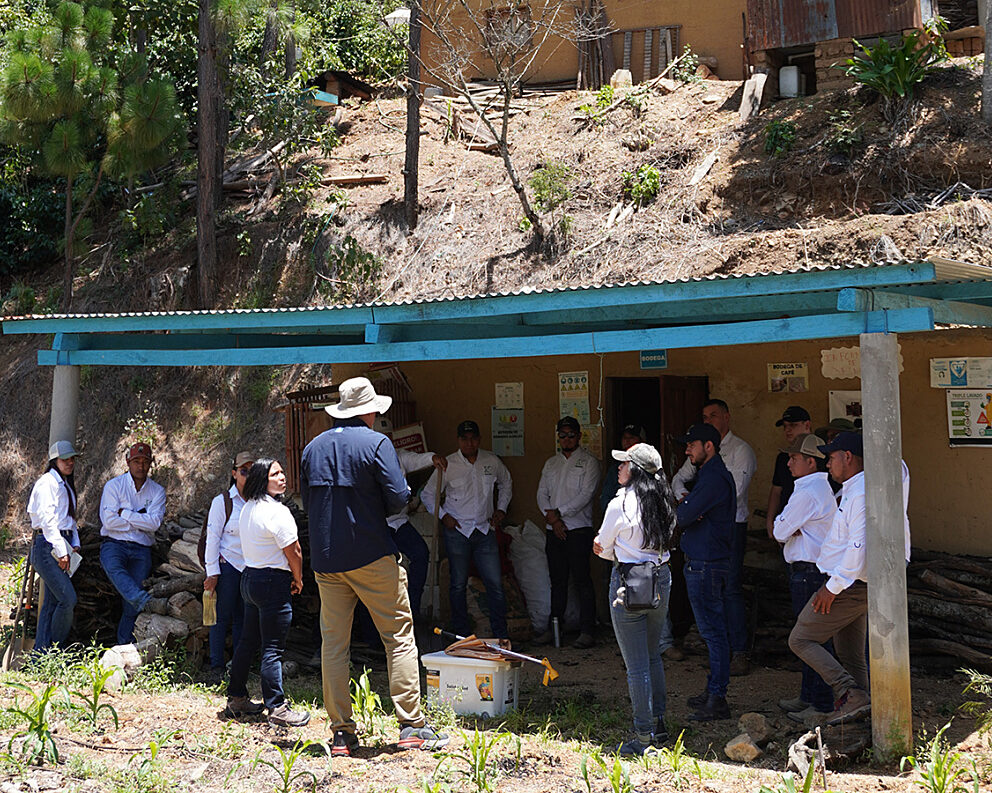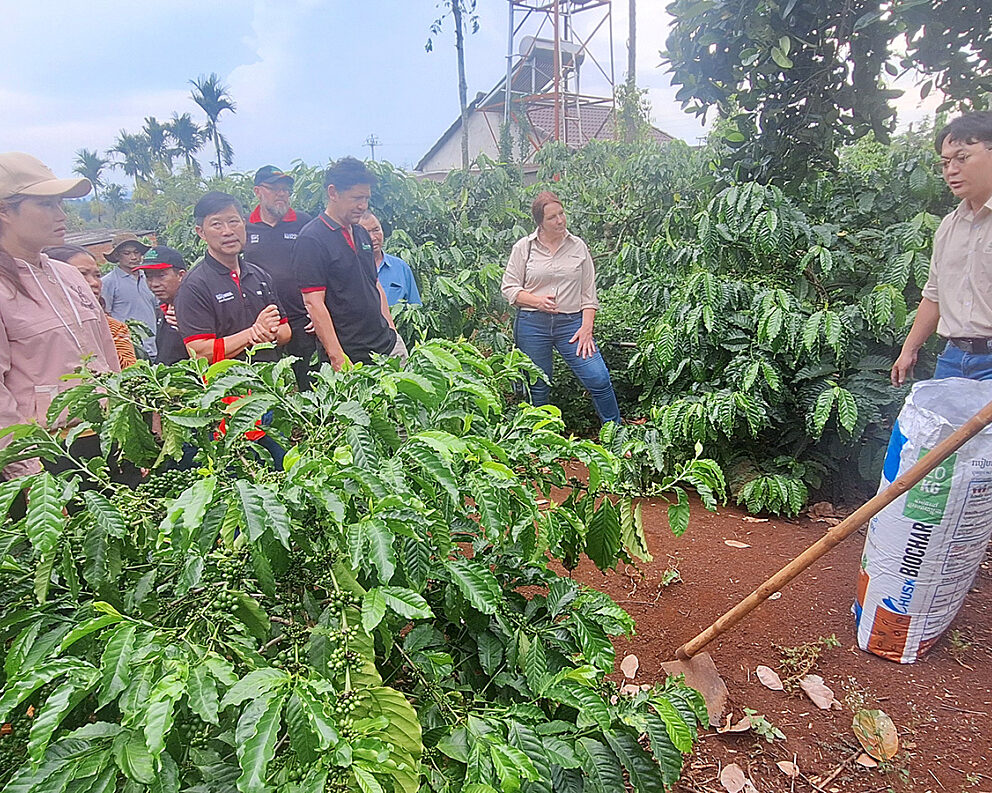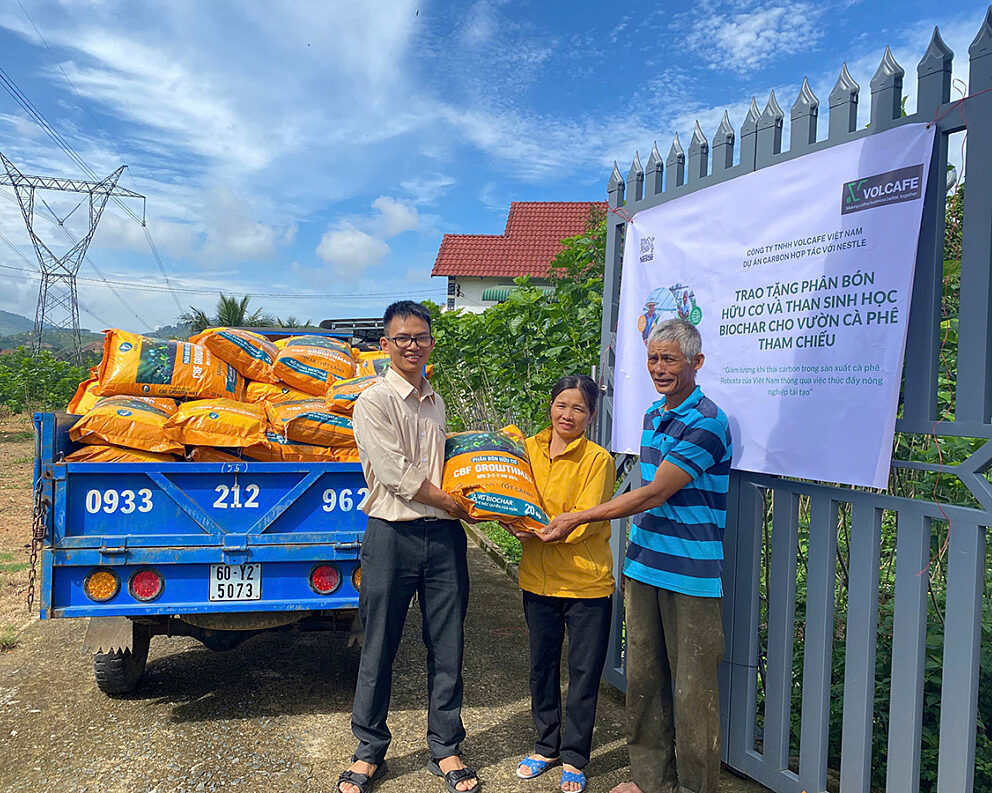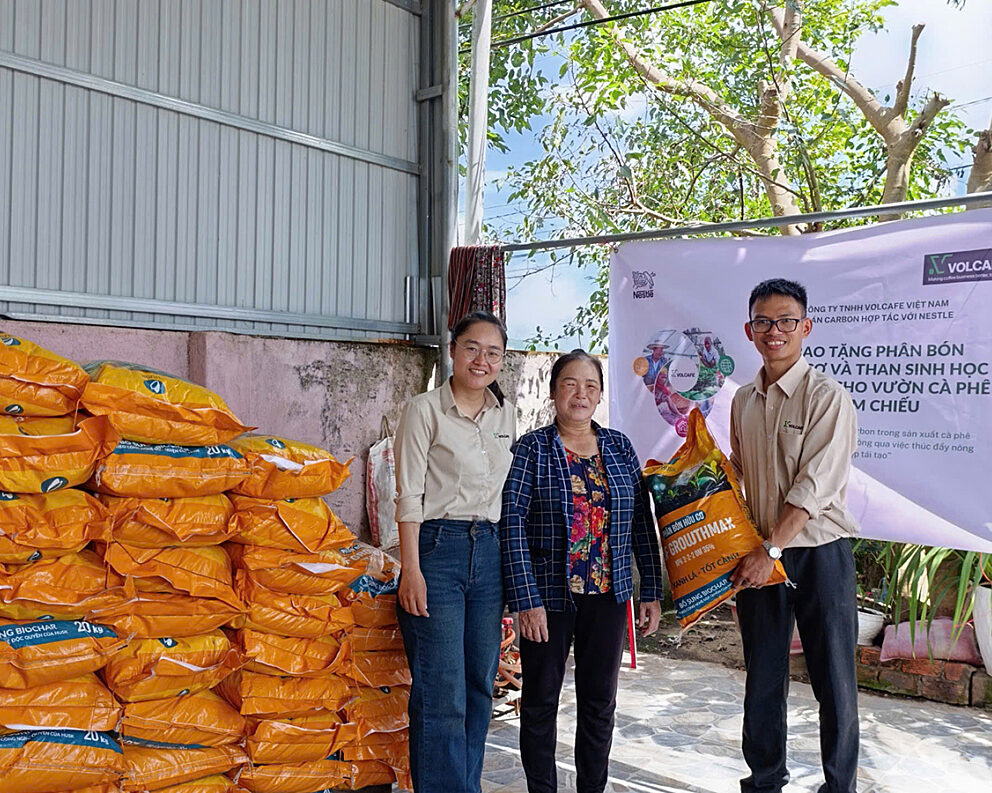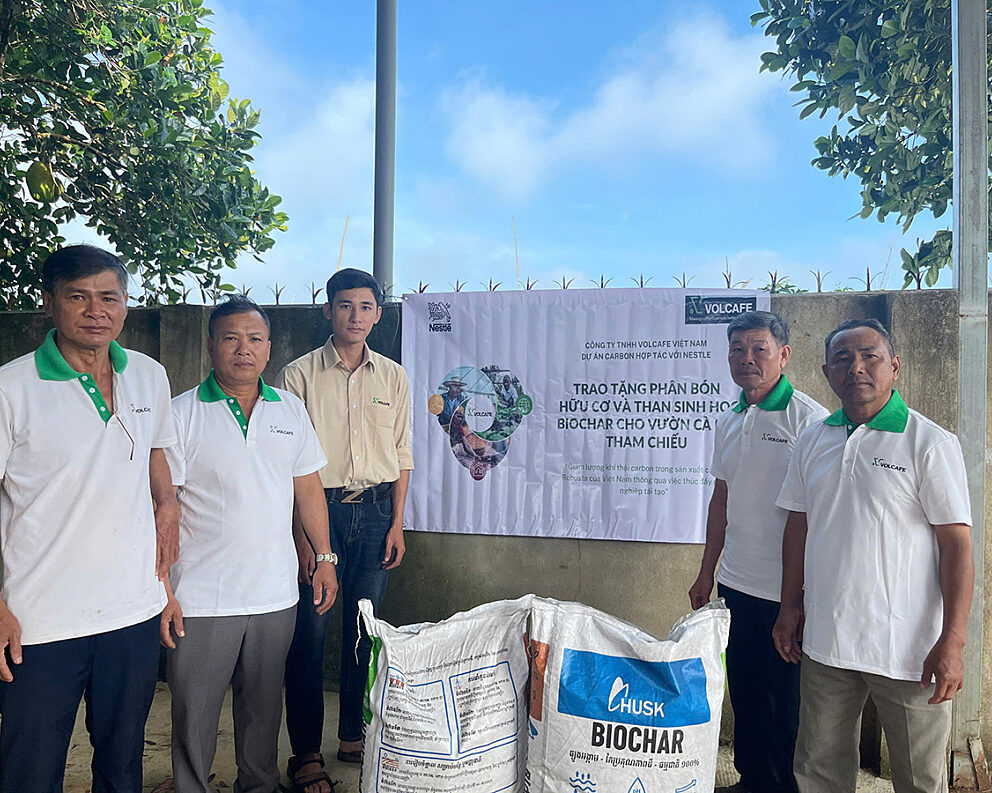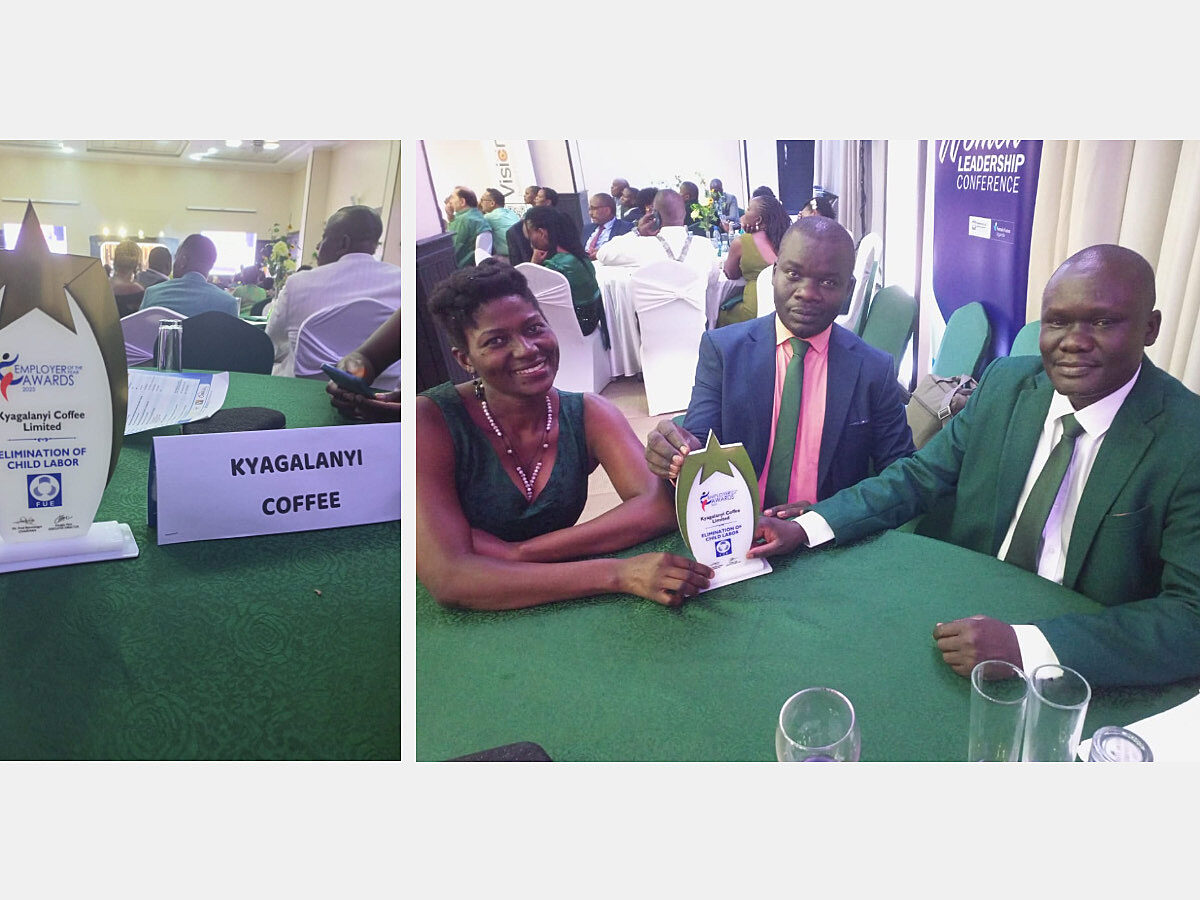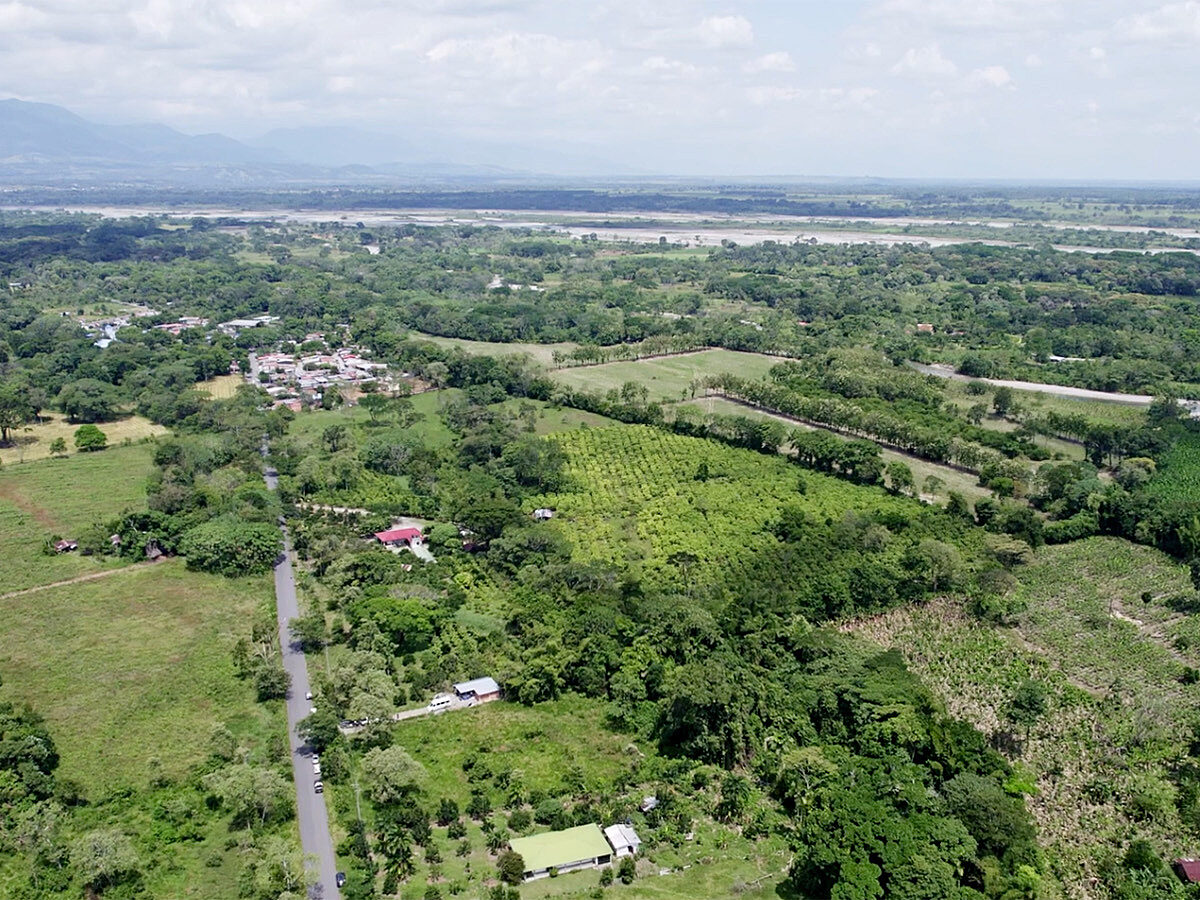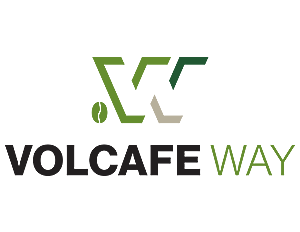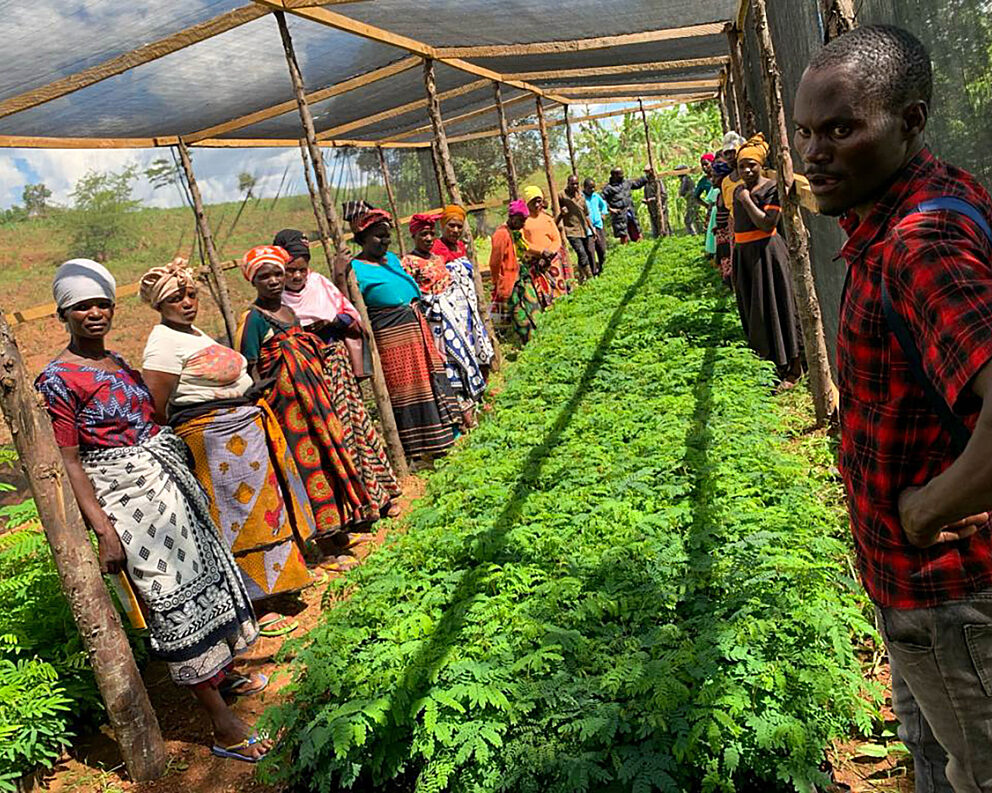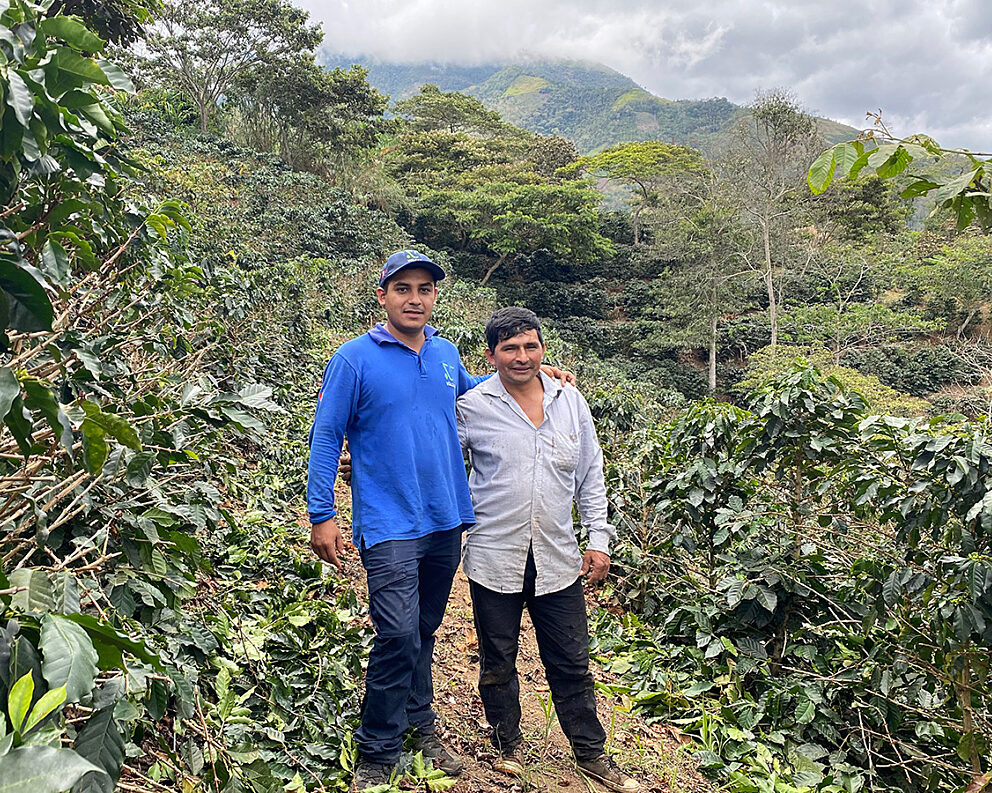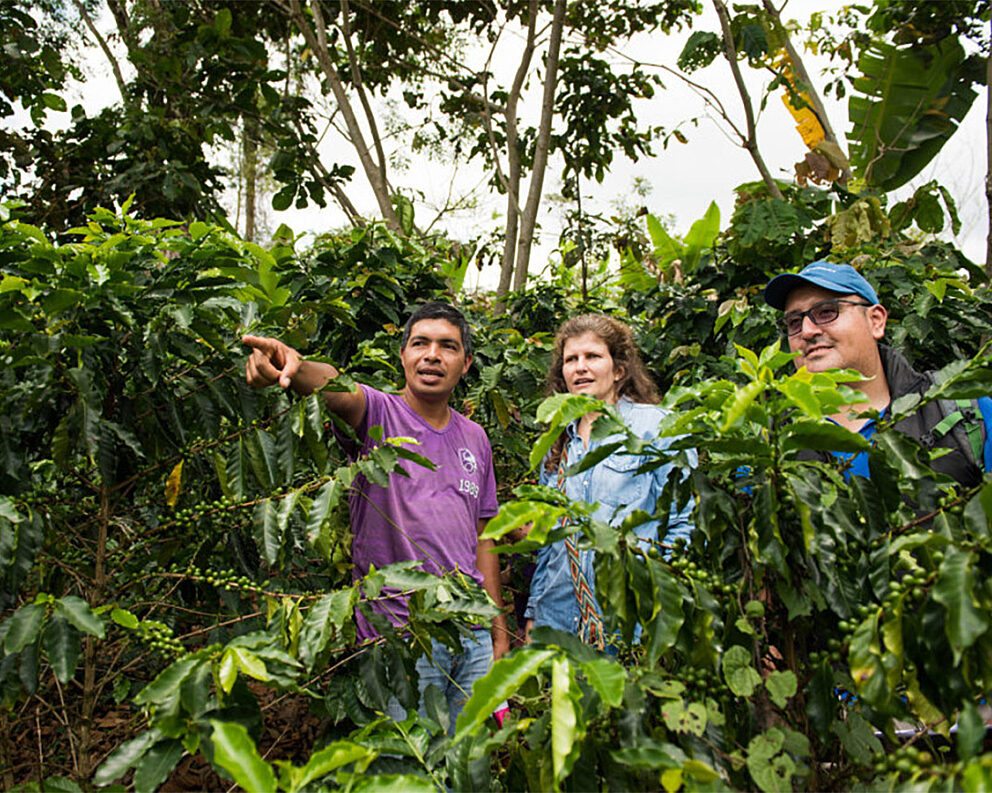Getting to grips with biochar
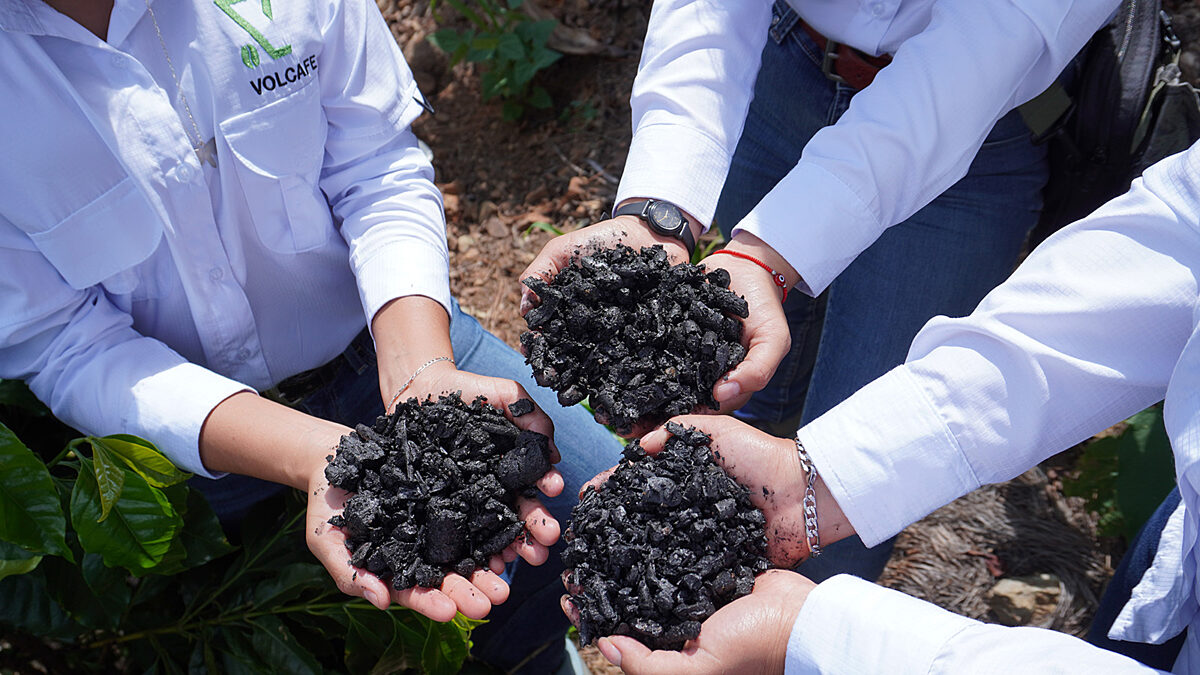
Circular approach converts biomass to soil enhancer and carbon store
While biochar is not a new invention, increased interest in biochar generation holds the promise of lower carbon farms, healthier soil, and cost savings for coffee farmers.
Short for ‘biomass charcoal’, biochar can be produced from a range of biomass materials such as plant clippings from pruning, fallen branches, or food waste. These are ‘burned’ in a low-oxygen, low-smoke process (pyrolysis) that yields a soil additive with many benefits. Beyond regenerating degraded soil and assisting moisture and nutrient retention, biochar is also effective at absorbing carbon dioxide (a greenhouse gas that contributes to human-caused climate change) and sequestering it safely in the ground for decades (even centuries). Biochar can also reduce methane and nitrous oxide emissions by curtailing fertiliser loss from the treated soil.
These qualities make biochar a potentially valuable technology for on-farm carbon removal and reduction, if it is prepared in the appropriate way. In 2024, the Intergovernmental Panel on Climate Change (IPCC) included biochar in a list of carbon dioxide removal technologies to be further studied in a forthcoming report.
At Volcafe, several of our teams have been exploring the promise of biochar and ways that we can spread this knowledge through our Volcafe Way
farmer support programme.
We are working closely with farmers to expand the use of biochar, while also advancing other climate-smart approaches...
'Volcafe is committed to reducing carbon emissions across the coffee supply chain. We are working closely with farmers to expand the use of biochar, while also advancing other climate-smart approaches such as agroforestry systems and improved agronomy practices. In addition, we are actively exploring and designing renewable energy projects for our facilities,’ says Karol Villamil, climate action lead at Volcafe.
Colombia
In the Nariño region, 100 coffee producers received training in biochar production using biomass obtained from coffee tree renovation. The training methodology, developed by the Ithaka Institute, involves digging a pit in the ground to carry out controlled pyrolysis. Additionally, ten producers in Huila were trained using the Kontiki method. Several tests were conducted to standardise the process and ensure its efficiency and safety. The resulting biochar was then used to compost coffee pulp, fertilise crops, and filter water as part of local treatment systems.
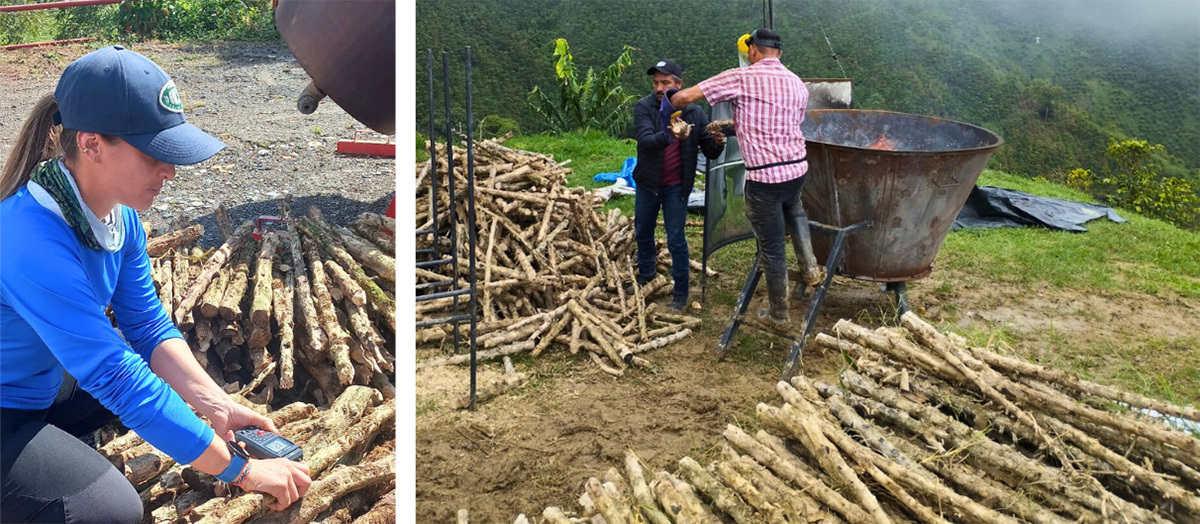
Our Colombian team worked with the climate solutions company Cotierra on a pilot project involving several farmers, which resulted in biochar-based carbon removal credits – a first in the country. The farmers, all of whom are involved in our Volcafe Way programme, implemented Cotierra’s decentralised approach to biochar production, using trimmings from their coffee plants and agroforestry systems to create biochar at their farms. This knowledge dissemination can support farmers to engage in circular processes, where farm ‘waste’ can be converted to a useful farm input.
'I am incredibly proud of the Carcafe team for their leadership in this project,' noted Sebastián Pinzón, General Manager of Carcafe, Volcafe’s entity in Colombia. 'Their dedication and innovation have been instrumental in demonstrating the tangible benefits of biochar for coffee producers.'
Guatemala
In August, 20 technicians from our Volcafe Way farmer support team in Guatemala underwent training in biochar generation as part of a pilot project in partnership with the Dutch NGO Solidaridad. The hands-on session helped our field team understand some of the benefits of biochar for coffee farmers while also learning the production process and challenges that can arise.
With this knowledge the partnership entered a new phase where we are expanding the training to farmers in several regions, with the aim of supporting them to begin generating and using biochar at their farms.
‘This method not only seeks to improve yields, but also to improve the quality of life of producers by reducing their dependence on chemical inputs,’ said Fernando Gramajo, Volcafe Way programme lead with Peter Schoenfeld, Volcafe’s Guatemalan company.
Uganda
In Uganda, our Kyagalanyi Coffee team has provided biochar derived from bamboo to 90 Volcafe Way model farms in the Masaka region over the past two seasons, in partnership with the Global Environment Facility, Nestle, and Nespresso. The biochar is mixed with organic fertiliser and added to the soil at the model farms, which provide real-world experience and demonstrate new techniques to other farmers in the surrounding areas. The prevailing view is that results may not be as immediate as those from chemical fertilisers, but that the biochar mix will likely have a sustained impact over several seasons, potentially reducing the overall need for agro-inputs.
From what our Volcafe Way agronomists have observed, the initial results indicate improved soil stability and positive effects on the length of the coffee branches and the weight of individual Robusta cherries. The team at Kyagalanyi will continue monitoring the results at the model farms in the seasons ahead.

Soils treated with biochar often become softer, easier to work with, and better at holding fertilisers – meaning less waste and lower costs...
Vietnam
During the past year, our team in Vietnam has worked on a project with partners that aims to reduce the carbon footprint of coffee supply chains. One of the project activities involved the purchase of commercially produced biochar and distribution to 20 farms, along with carbon-based fertiliser (CBF) to another 22 farms.
As the farmers incorporate biochar in their operations, the application of fertiliser and other inputs are monitored and compared with production yields by treatment. This will help determine the most appropriate mix for different farms.
‘Biochar can bring many benefits to farmers. When mixed into the soil, it helps keep more moisture and nutrients for crops, especially during dry seasons. Soils treated with biochar often become softer, easier to work with, and better at holding fertilisers – meaning less waste and lower costs,’ notes Son Le Ngoc, Agronomist and Sustainability Specialist with Volcafe Vietnam. ‘Biochar also stores carbon in the ground for a long time, which helps reduce greenhouse gases and protect the environment. Biochar shows promise for improving soil health, and building more sustainable farms for the future.’
While these pilots are still in their initial stages, they show promise – from the potential for increased yields and lower emissions, to the generation of carbon removal credits and greater circularity at farms.
Intrigued? If you are interested in developing a biochar project with Volcafe, speak with your trade or sustainability contact.
Marie Renou-Ullrich, Head of Marketing and Communications, email hidden; JavaScript is required


